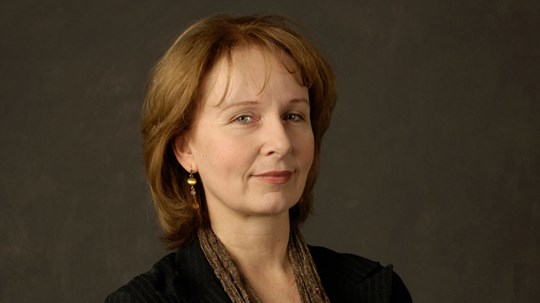 Scripted television still doesn't get evangelicals.
Scripted television still doesn't get evangelicals.This post contains spoilers for the Dec. 12 episode of Scandal.
A bloody body on the floor is hardly unusual during a mid-season finale, and on ABC's popular drama Scandal, it's practically de rigueur. What the killer said next is less common: "I have committed a sin." And, later, of the victim: "He is a godless sinner and he deserved what he got."
HUNTINGTON THEATRE CO / ERIC ANTONIOU / FLICKR
Last week's episode played out Sally Langston's crisis of faith, with an extended soliloquy full of heavy-handed religious jargon, set to tolling church bells. Over five minutes, Sally, played by Kate Burton, rattled off one Bible-influenced phrase after another: "poison fruit," "unleashed a snake into our garden," "sullied my soul," "sold my soul," "cross to bear," "original sin," and "promised land." (Get it now, audience? She's a CHRISTIAN!)
In the guilt and self-justification that follows, Sally's religious hypocrisy continues to glare. On a show that puts antiheroes in "white hats" on a regular basis, she stands out as the character most often in conflict with the rest and the sole one who claims religion as her motive.
Scandal makes its exaggerated characters seem authentic by grounding their actions in pure self-interest, making each loyal to a relatable, if relativistic, moral code and their commitment to a goal. In contrast, Sally claims to stand for evangelical principles, but when her stance (being pro-life, for example) is challenged, she caves to self-interest.
In a show championing heroes of moral relativism, Sally gets cast as the true hypocrite, the one who lies to herself about her motives. The show's other characters, the ones who are so relatable despite their horrific actions, at least admit to acting out of flawed motives.
The focus on Sally's ability to reason herself back into righteousness reveals to us a popular but flawed portrayal of religion on TV: faith as a cloak of justification, not one of grace.
Granted, depictions of evangelicals on network TV are few and far between. Plus, presenting faith on-screen can be difficult, since the nuances of spirituality are often an internal process. But what TV attributes to Christian faith tends toward convenience, rather than conviction.
Source: Christianity Today | Alicia Cohn
Comments